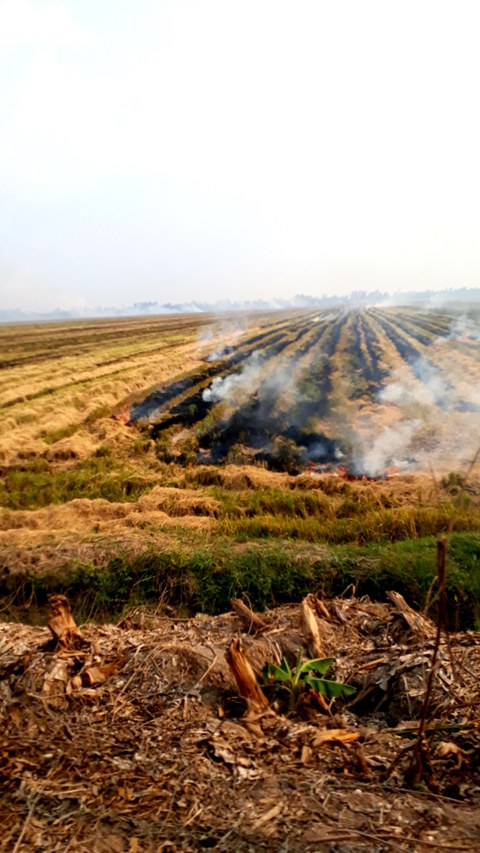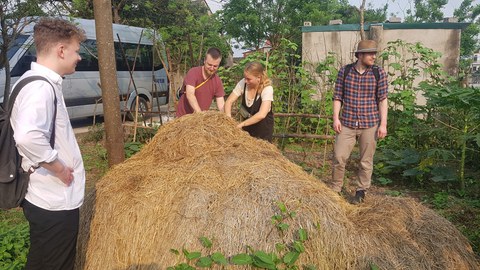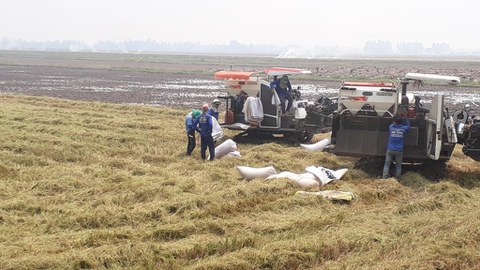research project SUVALIG
Sustainable biorefinery concept focusing on recovery of nutrients from biogas digestates and HTC process waters
| Partners: | - Hanoi University of Science, Vietnam National University (VNU)
- Leibniz-Institut für Katalyse e.V. Rostock |
|
Funding: |
BMBF |
|
Duration: |
November 2018 – November 2021 |
| Contact: | M. Sc. Anne Geißler M. Sc. Benjamin Schwan |
Project description:
The overall objective of the project is to develop a sustainable circular biorefinery concept for rural communities in Vietnam. The focus is on the cascade like use and recycling of lignocellulose residues in the form of novel, bio-based products and sustainable, resource efficient recycling routes.

Vietnam: the method used so far: incineration of rice straw in the fields
Considering the background of material and energetic utilization, energy and bio-based products are provided locally in the form of fertilizers, bioenergy carriers and high quality catalysts. The associated closure of regional material cycles can compensate infrastructural deficits in rural areas in Vietnam with regard to energy, transport and the supply of agricultural auxiliary materials. The Institute for Waste Management and Circular Economy assumes responsibility for (part of) work packages and contributes to the sustainable success of the project by participating in other work packages. In addition to the obligatory scientific preparatory work, e.g. comprehensive literature research and the design of experimental set ups, fermentation residues and HTC process water are examined on a laboratory scale for the extractability of the nutrients they contain. For the pilot plant of the integrated biorefinery, the TUD is responsible for the partial task of the technical conception of the test stand. Furthermore, the TUD provides the economic evaluation and risk assessment for the pollutant management of the biorefinery products. In addition, the Institute for Waste Management and Circular Economy supports the implementation of training courses and workshops for stakeholders in order to make the knowledge accessible in practice.

Vietnam: sampling in rice straw

Vietnam: processing of rice straw in biorefineries to be targeted
